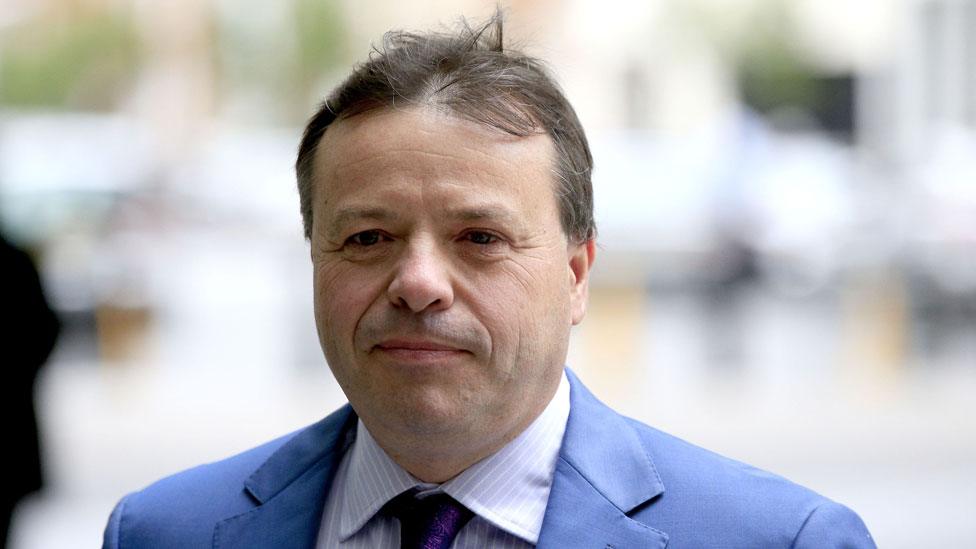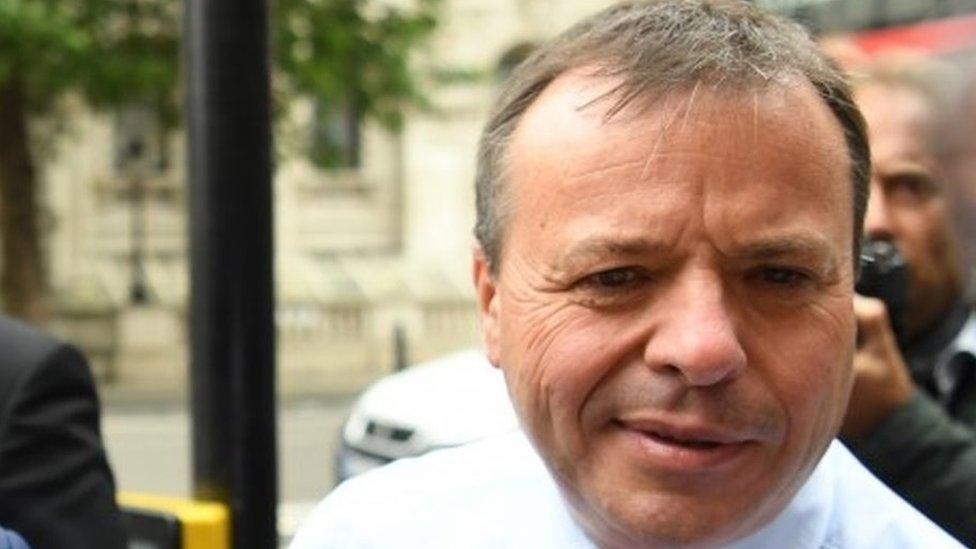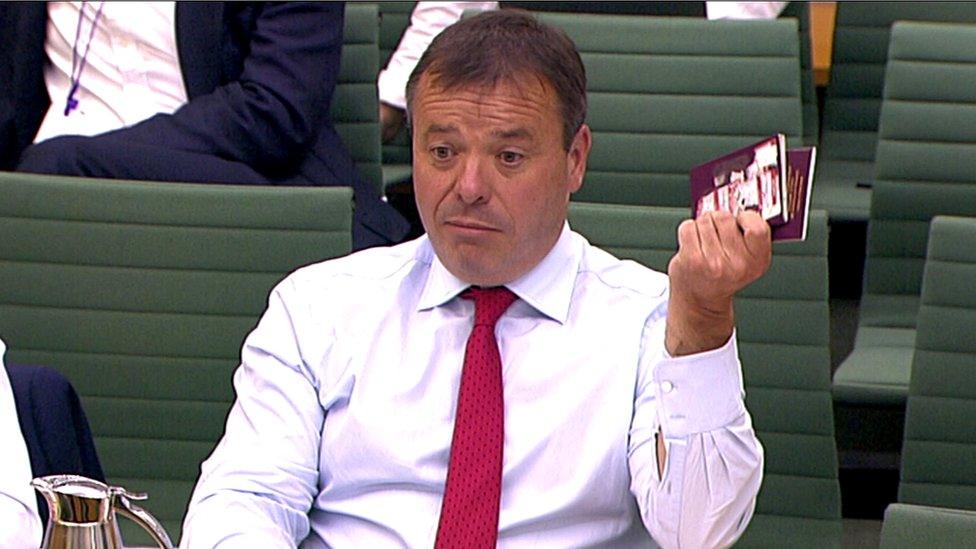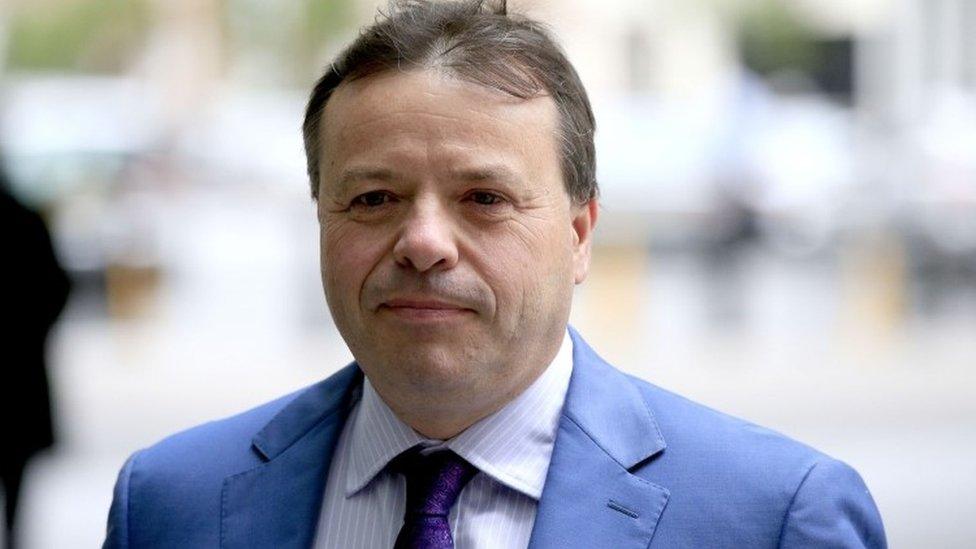Arron Banks: Brexit donor paid thousands to Lesotho government minister
- Published
Arron Banks paid a Lesotho minister thousands of pounds
Arron Banks paid thousands of pounds into a government minister's private bank account while seeking a licence to prospect for diamonds in the Kingdom of Lesotho, it has emerged.
The tycoon acknowledges he gave money to the politician but says it was to help fund his political campaigning.
Mr Banks, the Brexit campaign's biggest funder, denies corruption.
An anti-corruption investigator is now probing the alleged link in light of evidence gathered by the BBC.
Paul O'Sullivan, who has the authority to file a criminal case with the prosecutor, said there was a "serious lack of transparency".
Personal bank account
The evidence discovered by the BBC focuses on the relationship Mr Banks had with the leader of the Basotho National Party (BNP), Thesele Maseribane.
Mr Maseribane - who is also a government minister - admitted that Mr Banks, the Bristol-based businessman, transferred £65,000 into his personal bank account in South Africa.
He defended the transaction, saying: "Lesotho is overcome with corruption. I'm not saying my party is, but what I'm saying is we should try and practise a very fair policy."
Not only did Mr Banks transfer money to the party leader in 2013, he also covered the costs of campaign rallies, spending £350,000.
At around the same time, Mr Banks was seeking a prospecting licence for his mining site along the Senqu River in the south of Lesotho.
He also financially supported Mr Maseribane whilst he was in exile following a military coup in 2014, paying for his accommodation and food.

Who is Arron Banks?

The Bristol-based insurance tycoon, who was born in Cheshire, was a Lloyd's underwriter before starting his own firms
The twice married father-of-five has been a close friend and supporter of Nigel Farage
Mr Banks was a Conservative supporter until 2014 when he defected to UKIP, giving them £1m
He is one of the biggest political donors in UK history, thought to have given up to £9.6m to Leave.EU - which he co-founded - and UKIP
Leave.EU, which was backed by then UKIP leader Mr Farage, lost out to Vote Leave in the battle to become the official Leave campaign in the 2016 EU referendum
His Leave.EU campaign targeted its message at working class voters angry about EU immigration

When the BBC visited the Senqu River site, its manager Dirk Veldtman said it was now closing because of a lack of diamonds. In fact, only six diamonds were found in three years, at an estimated value of £28,000.
He said it was very difficult to secure mining permits and that it helped to "grease palms" of various government officials.
Email excerpts seen by the BBC show that several weeks after £16,000 was transferred into Mr Maseribane's account, Mr Banks' application for a prospecting licence was approved in 2014.
'Raises questions'
The BBC showed these interviews to Mr O'Sullivan, a high-profile anti-corruption investigator based in South Africa.
He said: "If you are paying the rent, buying food, and financially supporting politicians who could influence and further your own business interests, then there are clear signs of corruption at play.
"Putting money into the private bank account of a government minister also raises questions. There is a serious lack of transparency.
"I will be filing a docket, a criminal complaint here in South Africa and I will be sending a file to the Serious Fraud Office in the UK."
Mr Banks admitted financing Mr Maseribane, but denied that this amounted to corruption.
He said it was necessary to "grease palms" in Lesotho to get things done through government, but denied ever having done that.
He said his company had made four applications for mining licences, all of which are outstanding. However, he did not deny that Mr Maseribane had spoken to the mining minister on his behalf and that a prospecting licence had been granted in 2014.
- Published28 June 2018

- Published12 June 2018

- Published10 June 2018
